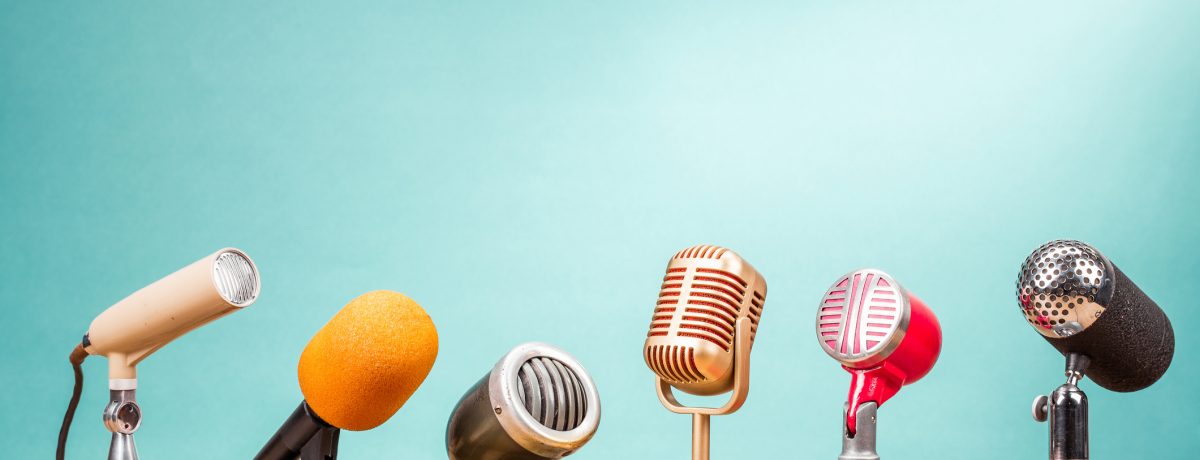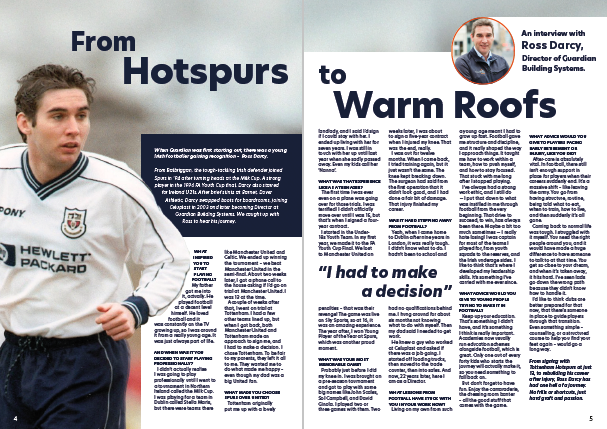Interviewing someone for an article or story can be overwhelming, especially when you’re new to PR and marketing. Knowing what to ask, how to ask it, and how to build a genuine connection with your interviewee doesn’t always come naturally. In both my former role as Senior Account Executive and my current one as a Junior Account Manager, I have spoken with a wide range of people: company directors, construction workers, and even professional athletes. It took a lot of trial and error (and a few awkward moments) to feel confident and capable conducting them.
Whether you’re a journalist, content creator, marketer, or PR professional, mastering the art of interviewing is essential for crafting compelling stories. Knowing how to conduct an effective interview can transform your content from average to outstanding. In this blog, I’ll share my 10 top interview tips and how to push past the nerves that often come with them:
1. Preparation is key.
If you don’t prepare for an interview, it’s almost guaranteed to fall flat. You need to know who you’re speaking with, what you want to ask, and ideally, have a good idea of how they might respond. Often, these interviews can be outside of your field of expertise, which means you’ll need to learn about your interviewee’s industry, and the context they operate in. Researching these details is essential to conducting a professional, productive interview.
2. Do your research, then do your research.
The more research you do beforehand, the stronger and more compelling your list of questions will be. Digging into the specifics of your interviewee’s role and background, or even personality, allows you to craft tailored questions they’ll actually enjoy answering. One of the best ways to do this is by checking out their LinkedIn profile or similar directories. Look into their interests, career history, and affiliations to create the best conversation starters.
3. Don’t forget to dig deeper.
I’ve found that preparing not just the questions, but also anticipating the answers, to be incredibly effective. You can’t predict everything – and that’s the beauty of the interview – but this kind of research can help you plan smarter, more endearing follow-up questions, which in turn gets you more detailed and personal responses.
4. Set clear expectations from the start.
A day or two before the interview, set clear expectations for your interviewee. Drop them an email letting them know the purpose of the conversation and how their insights will be used. Share a few key questions ahead of time to help them feel prepared – no one likes being put on the spot, even when they know the perfect answer deep down.
Be sure to discuss any parts that should remain confidential. The more comfortable and informed your interviewee is, the more thoughtful and relaxed their responses will be!
5. Keep things chatty.
To get the most out of an interview, and to make your article more engaging, it’s important to get past that rigid Q&A format. Your list of questions should act as a roadmap, not a script. Don’t be afraid to veer off course if the interviewee takes the conversation somewhere else. In fact, encourage it.
Let them talk, while guiding them with smart follow-ups. The more natural and conversational the tone becomes, the more relaxed they’ll feel – and that’s when you get the best responses from them.
6. Don’t forget to hit record.
One of the most valuable tools for conducting interviews is recording them – just make sure to ask for your interviewee’s consent first. Relying solely on handwritten notes can be stressful and distracting; it’s easy to miss something important while scrambling to keep up. Recording allows you to stay present in the conversation and ensures you capture everything accurately. These days, most of us can record with our phones or in-platform, if conducting the interview over Zoom, Teams, etc. But if you prefer, it might be worth investing in a reliable voice recording device (just remember to charge it!).
7. Listen up.
Even if your recorder is running, don’t forget to truly listen. Active listening helps you ask more effective follow-up questions in the moment – something even the best prep can’t replace. It also signals to your interviewee that you’re genuinely engaged, encouraging them to open up.
You should also avoid interrupting or chiming in with your own thoughts—this is their moment to speak. A simple nod, or a quick “yes” or “I see” (especially when over the phone), is enough to show you’re present without disrupting their flow.
8. Get it all written down.
While it’s useful to jot down key points during the interview, having a full recording means you can later create a detailed transcript (if the interview is conducted virtually, you should be able to access or install in-platform transcription tools). From here, start trimming the unnecessary bits, rephrase where needed to suit a written format, and build out your piece with a clear structure. Use the transcript as a foundation for your written piece, and you’re halfway there already!
9. Be prepared to step out of your comfort zone.
Interviewing someone—especially for an article or content piece—isn’t always in our comfort zone. And in PR, you can find yourself speaking with people from all walks of life across countless industries.
When we were putting together a sports-themed newsletter for a client, I suddenly found myself interviewing a lineup of athletes. But I know next to nothing about sport. So, I turned to my dad, the biggest football fan I know. He walked me through the jargon and gave me what I needed on players, positions, and sporting culture. I then went down a Google rabbit hole to fill in the rest. With enough research and prep, you can confidently interview anyone—even if you’ve never heard of them before.
10. Have confidence!
The final one of our interview tips is, above all, have confidence. And if you follow the steps above, that confidence comes much more easily. Do your research, plan ahead, and try to anticipate their answers. When you appear confident, interviewees are more likely to trust your questions and give better answers in return.
I hope you’ve found these interview tips useful. Practice really does make perfect. The more interviews you do, the better you’ll get. Mistakes are a part of the process – I’ve made plenty – but each one teaches you something new! If you’d like to discuss these interview tips, feel free to submit a query or comment on our social. You can also find me on LinkedIn.
If you would like to learn more about some of the work Smith Goodfellow does, see the projects and what we do page.




